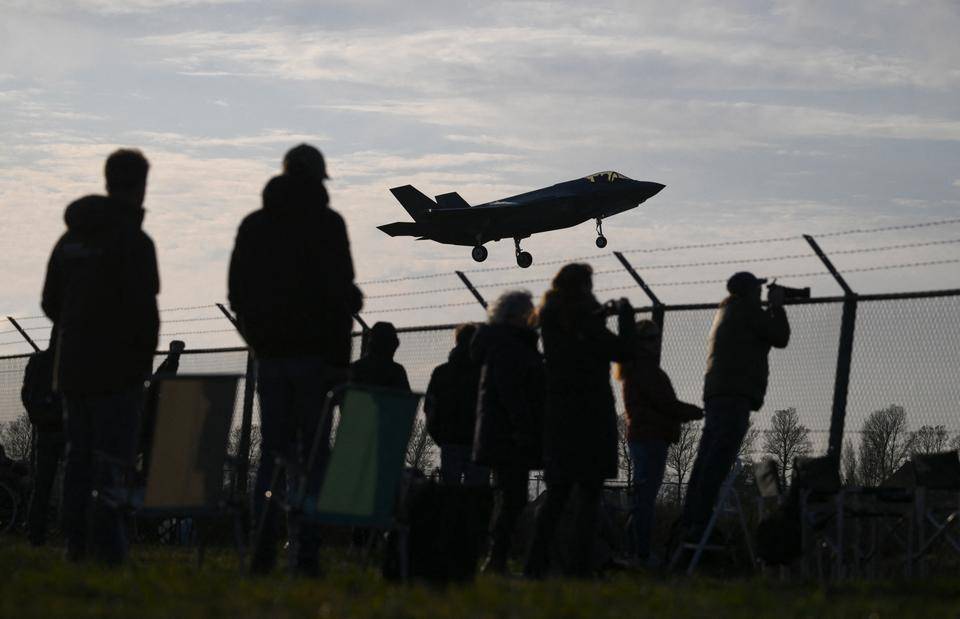“Sky‑High Costs, Political Fallout: Switzerland’s F‑35 Deal Sparks National Outcry”
Switzerland’s decision to procure 36 F‑35A Lightning II fighter jets from the United States has transformed into one of the country’s most controversial defense procurements in recent memory. Initially framed as a strategic modernization of its air defense capabilities, the deal now faces fierce criticism over ballooning costs, broken promises, legal loopholes—and growing unease about Switzerland's deepening reliance on American systems.
In September 2022, Switzerland’s government formally signed a contract to acquire 36 F‑35As, at an estimated cost of CHF 6.035 billion (~$6.5 billion) . The jets are expected to replace the aging F/A‑18 Hornets and F‑5 Tigers between 2027 and 2030 .
From the beginning, the deal stirred concern: critics warned that Switzerland, traditionally neutral and focused on territorial defense, was opting for an over‑engineered “Ferrari” of fighters . The F‑35's advanced stealth, networked sensors, and offensive capabilities seemed at odds with Switzerland's defensive posture and modestly scaled geographical needs.
Swiss officials in June 2025 publicly acknowledged that the originally agreed price may no longer hold. The U.S. Defense Security Cooperation Agency reportedly informed Swiss negotiators that rising U.S. inflation, raw material costs, energy prices, and updated technical specifications could tack on an additional CHF 1–1.5 billion to the deal .
National Armaments Director Urs Loher described the situation bluntly: “A contract is a contract… But we are now facing a different reality,” citing a possible CHF 1.3 billion spike . Former federal auditor Michel Huissoud confirmed that “the cost was never fixed” and thus always exposed to unpredictable mark‑ups .
Such mid‑contract price hikes triggered alarm inside federal circles and among parliamentarians, sparking emergency diplomatic talks with Washington. Bern is now privately seeking assurances and legal explanations, fearing that unilateral U.S. cost increases could damage trust and expose vulnerabilities in Swiss procurement .
Public sentiment has turned overwhelmingly against the F‑35 project:
Roughly 81 % of Swiss citizens oppose the purchase—jumbo support peaked at 87 % in French‑speaking regions .
A “Stop‑F‑35” petition gathered more than 42,000 signatures, fueling calls for a referendum .
Critics argue that the jets undermine Swiss neutrality and are disproportionate to the country’s modest defense requirements .
While Switzerland’s direct democracy allows for popular challenges, the federal government argues that the deal was legally signed before a referendum could be fully activated—and now falls outside the legal timeframe for cancellation .
Still, unrest persists in Parliament. Left‑wing parties and Greens demanded renegotiation or cancelling, prompting an official inquiry dubbed “Who signed this garbage?” .
At the heart of the scandal lies a fundamental question: was this a fixed‑price deal?
Swiss authorities insist on a fixed CHF 6 billion price, but U.S. officials counter it was a pricing “misunderstanding” . Swiss federal auditors reported that mandatory price guarantees were lacking—and no punitive measures exist to hold the U.S. accountable .
Parliamentarians, including Priska Seiler‑Graf, confided fears of future price hikes—potentially up to CHF 7.2 billion, implicating another 20 % surge . And, to complicate matters, initial industrial offsets promised to Swiss businesses have delivered only 32 % of the expected CHF 2.9 billion, falling well short of the original 60 % target .
Furthermore, key procurement documents reportedly went missing or were deleted in 2022, fueling accusations of opacity and cover-up .
With legal recourse limited by contract framing, Switzerland launched a diplomatic campaign. High-level negotiators have entered discussions with the Pentagon and U.S. Defense officials to clarify terms, potential renegotiation, or compensation .
Bern insists on a binding price and secure industrial compensation packages. However, U.S. negotiators warn that reneging may delay jet deliveries beyond 2027‑2030, weakening Switzerland’s air-defense timeline .
Aviation experts underscore the significance: Switzerland's F/A‑18 fleet will retire around 2032—any delay or cancellation leaves a significant defense capability gap .
Swiss Air Force Chief Peter Merz emphatically defended the purchase, dismissing critics calling it “almost unbearable” . He noted that no symmetrical European alternative rivals the F‑35 in capability and emphasized that all Western fighters rely on U.S. technology anyway .
The Defense Ministry echoed those views, warning that pulling out now would weaken aerial defense and risk leaving Switzerland with no frontline jets to patrol its airspace independently after 2032 .
But detractors argue those capabilities far exceed Switzerland’s air policing needs in the Alps. They spotlight simpler rivals such as the Saab Gripen or Dassault Rafale—lighter, more affordable, and better suited to Swiss neutrality .
Indeed, the Rafale was considered in 2021 and came with support from Europe—including France reportedly pledging financial bonuses to influence Switzerland .
1. Budget integrity: Taxpayers are now staring at costs well above CHF 7 billion—raising fears of ongoing overruns.
2. Neutrality at stake: Fierce domestic backlash underscores concerns about aligning too closely with U.S. defense infrastructure.
3. Procurement transparency: Missing documents and incomplete offsets question the federal government's due diligence.
4. Defense readiness pressure: With F/A‑18s aging out, there is intense pressure to avoid a capability void—even as the deal unravels.
5. Geopolitical tensions: Intensifying scrutiny from Europe highlights a growing debate over buying U.S. hardware vs. regional autonomy.
Switzerland is at a crossroads: hold its course with the U.S. F‑35s and risk domestic unity and neutrality or pivot to European platforms that align better with its defense ethos and democratic process. Choices made in the coming weeks whether renegotiation succeeds, industrial offsets are delivered, or public referendums are forced will define Swiss defense policy for decades.
The F‑35 deal saga isn’t just about jets it encapsulates Switzerland's values, democratic processes, and role between geopolitical giants. Resolving this will either reaffirm Swiss autonomy or leave a legacy of compromised policy and alienated voters.



